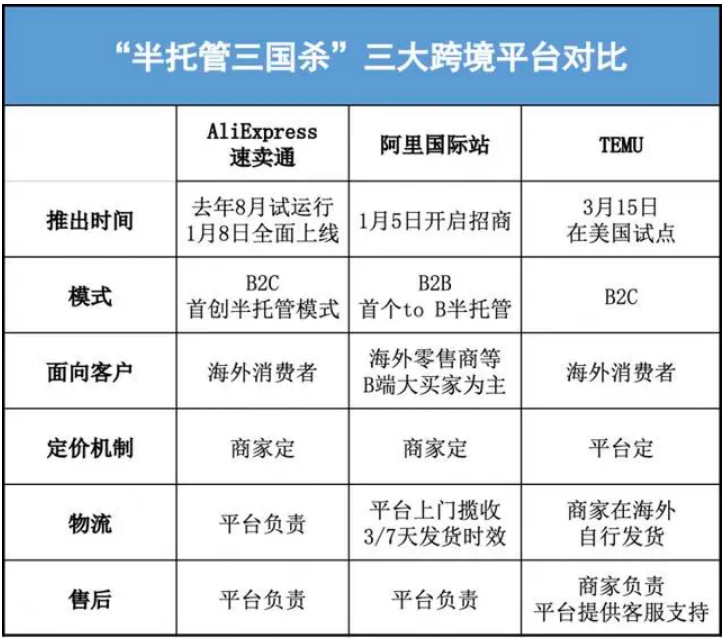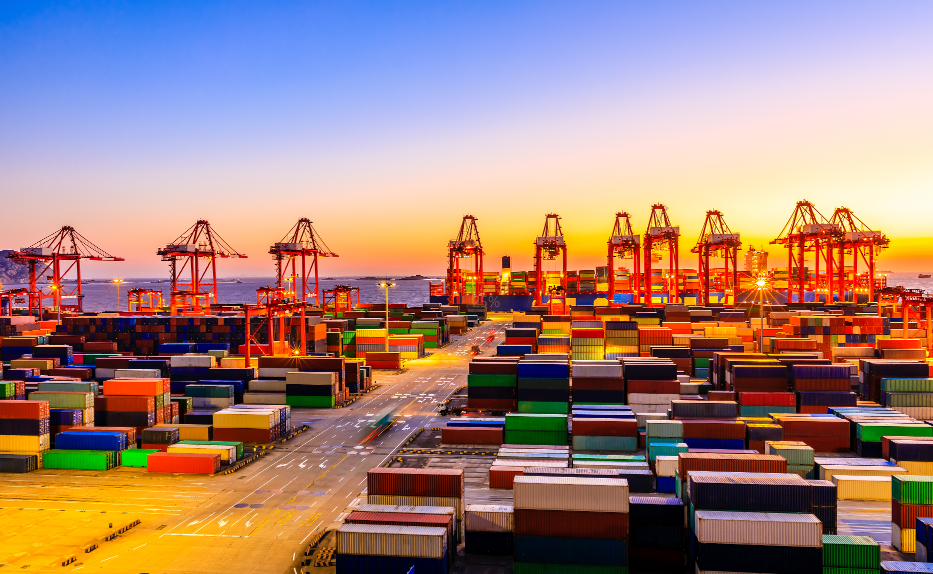
![[sort:pic]](/template/default/images/banner/3-3.jpg)

Lean management provides customers with high-quality services and a visible panoramic view of the prosperous era.
Share
Logistics News | The 2024 Cross-Border Trends Every Seller Should Know
As sellers kick off the year with strong performance, AliExpress has also delivered impressive results. According to Alibaba’s Q3 2024 fiscal year earnings report, AliExpress orders surged by 60%, while Alibaba’s international e-commerce revenue grew by 44%, exceeding market expectations for six consecutive quarters!
Since 2023, innovation in cross-border e-commerce has never stopped. Over the past year, the "Four Cross-Border Giants"—AliExpress, Temu, Shein, and TikTok Shop—have rapidly expanded through fully managed models. Many in the industry have been wondering: After full hosting, what will be the next big trend?

At the start of 2024, the answer is becoming clear: Semi-Managed Models.
AliExpress’s "Chinese New Year No Holiday" promotion was the first test for semi-managed operations. Before the holiday, AliExpress issued multiple announcements offering subsidies, including on-time shipping incentives, early warehouse funding, and waived storage fees, to prepare for the sales surge. Some sellers analyzed the competitive landscape and decided to stock up aggressively during the holiday to gain an edge.
Seller A, who joined the semi-managed program last year, recalled how AliExpress representatives enthusiastically promoted the model, emphasizing its flexibility in upgrading logistics services. Attracted by the promise of faster shipping—a key concern for many sellers—Seller A quickly saw results: "Orders poured in within a week!"
Facing a near-doubling of orders before the holiday, Seller A prioritized inventory allocation to AliExpress, betting big on semi-managed sales.
Other cross-border platforms are also embracing semi-managed models. After a four-month trial, AliExpress fully launched its semi-managed service, followed by Alibaba International Station, which introduced a B2B version, holding five packed nationwide roadshows. Meanwhile, Temu is reportedly preparing its own semi-managed model, set to launch in March.
By early 2024, the cross-border e-commerce industry had entered a "Three-Way Semi-Managed Battle".

Currently, AliExpress’s semi-managed model extends logistics services to POP sellers, allowing them to set their own prices while the platform enhances competitiveness with warehousing and marketing support. Alibaba International Station targets B2B sellers with ready stock, while Temu focuses on sellers who can handle their own overseas warehousing and fulfillment.
With both AliExpress and Temu emphasizing logistics speed, Seller C notes that this addresses a major pain point for traditional cross-border sellers. However, the best choice depends on each seller’s capabilities.

As the semi-managed model gains traction, industry experts believe it allows sellers to compete beyond just price wars, leveraging product and service advantages instead.
One seller put it bluntly: "Competition is inevitable, but we want to compete on our strengths. For us, AliExpress’s semi-managed model is a game-changer in 2024."
2023 was a challenging year for Amazon sellers. Beyond internal competition, external rivals like Temu, Shein, and TikTok Shop aggressively challenged Amazon’s dominance, leading to order declines and shrinking profits for many.
To help sellers strategize for 2024, we analyzed top-selling categories and brands on Amazon’s US and UK sites in 2023.
● Mattresses
● Laptops
● Phone Cases (105 million units sold)
◇ Women’s casual dresses, running shoes, and athletic sneakers collectively generated $3.1 billion in sales, proving strong demand in women’s fashion.
● Apple led with $2.746 billion in sales (+225% YoY), driven by iPads.
● Logitech saw the highest growth: 330% sales increase, 289% volume surge.
● Smartphones (£197M, +86% YoY)
● Air Fryers
● Toy Building Sets
◇ Tablets had the highest growth: +141% sales, +133% volume.
Most leading brands sold home appliances and furniture, indicating strong demand for high-ticket household goods—a potential opportunity for 2024.

According to industry reports, container rental rates for US West Coast shipments have skyrocketed by over 220% since the Red Sea crisis.
Shippers are diverting cargo from East Coast to West Coast ports, boosting volumes at Southern California terminals and driving up leasing costs. Experts warn of container shortages due to a lack of empty boxes returning to Asia.

With the Red Sea crisis and Panama Canal restrictions disrupting East Coast routes, demand for West Coast shipping is expected to rise further.
Notably:
● US West Coast ports saw increased January throughput.
● US consumer spending grew by 3.3% in 2023, with low inflation supporting steady demand.
Analysts predict strong restocking demand from retailers, keeping container demand high in the coming months.